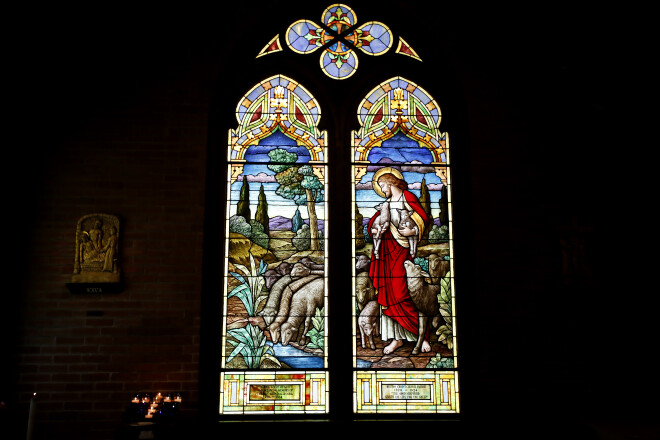What the Old Testament, or the Hebrew Scriptures of the Elder Testament, Does

Remember we are building our temple of faith, and the stained glass windows let His light in. That is why they represent the Scriptures. We have paused to consider the Old Testament in particular, which task we complete with this entry. There are doubtless many answers, but I here list some important ones.
The Old Testament grounds the revelation of God in history and in real human life. We are not offered a work of mysticism, nor poetry, nor myth, though one could characterize particular passages this way. It is the world, and all of it, that God addresses, and a people He deploys, deeply flawed though they be.
The Old Testament begins at the beginning and envisions the end of all things. These books set the expansive, inclusive frame of our relation to God.
The Old Testament introduces us to the Lord of heaven and earth, who is the Word from the beginning, speaks to us, so that we pay attention to His words. His speaking so that we can hear is itself a gift of God, and the starting point of our life with Him. He bends down to do this, and no less glorious for doing so.
The Old Testament provides the story in which we can identify God, and in so doing identify ourselves. It is in narratives that we humans do this.
The Old Testament provides the elements of our faith, elements we share with the Jewish people, so that we are related in a close and complex way. Word of God, Messiah, people of God, Kingdom of God, prophecy, resurrection, exile, repentance, the nations, etc., without these the New Testament can make no sense.
Discuss some of the ways we misunderstand the Old Testament (legalism, angry God, unevolved, etc.,) and how you would answer these.



